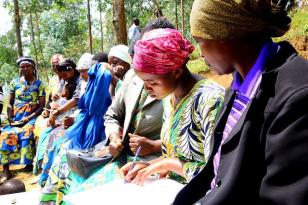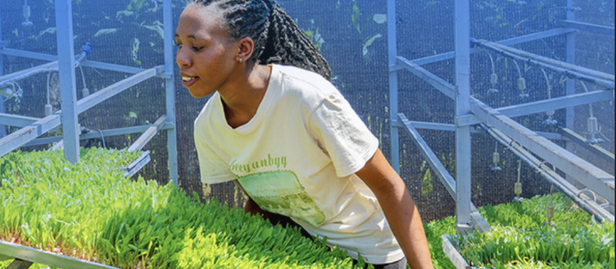Rwanda 2014 NATIONAL HUMAN DEVELOPMENT REPORT

Rwanda 2014 NATIONAL HUMAN DEVELOPMENT REPORT
January 19, 2022
Human development is a concept that goes beyond economic development and income levels, and includes other foundational elements that contribute to a long, healthy and prosperous life. The Rwanda Human Development Report 2014 examines the social, economic and political aspects of the country’s development, with an aim to expand social protection and to empower local people as a key pillar in sustainable economic growth.
Decentralization and accountable governance are very key instruments of economic transformation, as the government seeks to bring governance closer to the people. Local, accountable public management is at the heart of good governance, essential for human development. Local participation fosters political stability, develops the capacity of local decision-makers, and creates pressure for improved public service provision, identifying local priorities and increased efficiency and equity of resource use.
There is need to create strong links with decentralized levels, by establishing, institutionalizing, monitoring and evaluation systems and greater investment in public sector capacity building. When that level is achieved, there would be sustained momentum and lasting impact as far as the decentralization and human development are concerned.
The report presents an integrated structure that combines socio-economic issues with various dimensions of the human development process in Rwanda. It explores priorities for basic human needs: education, health care for all, empowerment of people to develop their capabilities, and protection of basic human rights. It also seeks to strengthen the national capacity for analyzing development dynamics and coming up with effective strategies to address identified challenges.
So far, there has been impressive progress in the social sectors of health and education through investing in areas that empower citizens to participate more productively in the economy. The United Nations and other partners will continue supporting Rwanda to leverage its experience of rapid development, including public sector efficiency, and using home-grown solutions for greater socio-economic transformation.
This cause of empowering local governments has gained vast political support, and the government and the people of Rwanda and development partners remain committed to human development. It is therefore hoped that this report will be used as effective tool for the implementation of national development policies and as an advocacy tool to remind the nation of its development priorities.
Rwanda Human Development Report 2014 is, therefore, the result of a collective and deliberate effort of an array of stakeholders who have made their contribution to the realization of the country’s quest towards its development efforts. We are grateful for the numerous suggestions and analysis provided by our colleagues and partners at various stages of preparing this report.

 Locations
Locations




